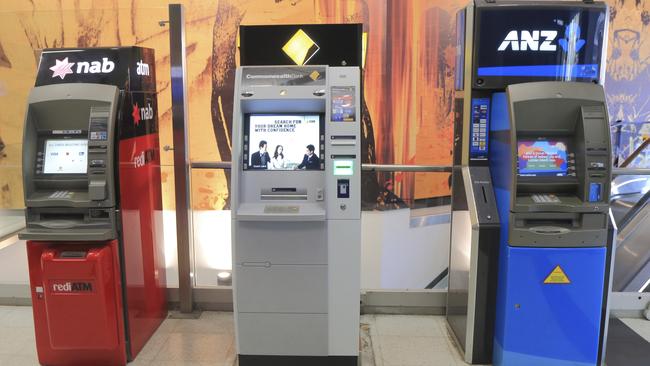Barefoot Investor: Compound interest a savings key for anyone, including those in jail
THE power of compound interest is a great leveller. It doesn’t matter how smart you are at school … or whether your father has been in jail, writes Barefoot Investor.

Barefoot Investor
Don't miss out on the headlines from Barefoot Investor. Followed categories will be added to My News.
THE power of compound interest is a great leveller. It doesn’t matter how smart you are at school … or whether your father has been in jail, writes Barefoot Investor.
KELLY WRITES: I am a teacher and run IT classes at a maximum-security prison in Queensland. Having just read your book, I’ve been incorporating some of your principles into the classes. For example, we set out 60 per cent “living expenses” and 40 per cent “other” on an Excel spreadsheet and worked out the compound interest. I mentioned the book, and one of the young men (it’s an all-male prison), who is 28, asked for the title and wrote it down. I then remembered I had a copy in my prison-issue, clear-plastic bag, so I read them the part of your book called “Letter to My Boys”. He said: “You know, I’ve been feeling fairly depressed the last couple of weeks. This has given me some hope for when I get out.” I said to another young man in the class, who has a six-year-old son: “If you had something like this that you could use to educate your boy when you get out, would that give you something to focus on other than drugs and the criminal life that goes with it?” He responded: “Absolutely, I can’t wait to hear more, and I would love to set my son up so he doesn’t follow my path.” I felt like a proud mother! Isn’t it nice to know that your book is touching people in the most unconventional circumstances. I love my job, I love the young (and older) men I work with in prison. But I get disappointed when I feel we are not really giving them skills to change their lives — though I try. I am there with them, and I know some of your simple principles will be too.
BAREFOOT REPLIES: Thanks for your amazing email. I’ve spent a bit of time in prisons myself. (Helping young inmates with their money, not doing time.) For readers who haven’t read my book, the “Letter to My Boys” is a letter I wrote to my boys (in the future, when they can read) explaining the power of compound interest. Briefly: A teenager gets a job on a farm and invests $5000 a year from age 15, then stops at age 25, then lets the compound interest tick over. Total outlay: $50,000. His mate doesn’t start investing till he’s 25, but then invests $5000 a year for the next 35 years. Total outlay: $180,000. At age 60, who has more money? You’d think it’d be the guy who put in $180,000, right? Wrong. Even though the teenager has put in less than a third of his mate, he ends up with 50 per cent more ($2.7 million, versus $1.64 million). The power of compound interest, along with discovering the joy of hard work, is one of the great levellers in life. It doesn’t matter what your family background is, how smart you are at school … or whether your father has been in jail. Everyone needs hope, especially the children of prisoners, so I’m sending you 20 signed books. Keep up the good work!
COST OF INVESTMENT
BEVERLEY ASKS: I have a rather curly question but I hope you can answer it. My husband and I are five years from retiring and, combined, we have just over $620,000 in assets, including an investment property with a mortgage. My question is, does Centrelink take the mortgage from the investment property off the total of investment assets when assessing us for the age pension?
BAREFOOT REPLIES: In a word, yes. Centrelink only counts the equity in the investment property (less the debt) for the age pension asset test. If, however, you have both a mortgage on your home and a mortgage on your investment property, I’d encourage you to focus on paying down your home over the next five years, because its value is totally exempt from the asset test.
CREDIT CARD CON
MATT WRITES: I had three separate friends recommend that I read your book, so I gave it a try. I have to admit I was enjoying it, until I got to page 79. That’s when you started talking about credit cards, and you showed you have no idea. If you really are a money guy, surely you could make credit cards work for you? If you like, I could teach you how to use the banks to get serious rewards. Maybe you could join me in first class … or maybe they don’t let people in without shoes?
BAREFOOT REPLIES: Bang! You sure schooled me. The truth is that I have my own rewards scheme going on — but it’s got nothing to do with flights, or toasters. Let me explain: It’s no secret that the banks have been playing hokey-pokey with the value of rewards points for years — but right now it’s just getting ridiculous. These days getting a reward from your credit card is almost as hard as getting a reward your wife after seven years of marriage. Case in point: over the past 12 months the banks have been secretly shutting down, or radically reducing, the value of their rewards cards. According to financial comparison site Mozo, the banks have yanked the value of their rewards points, on average, by a staggering 63 per cent in the past year alone. Bottom line: the value of the points, and the restrictions on redeeming them, will only continue to go one way — down. So what’s my rewards program? Well, it’s not having to bother playing the rewards point shuffle. It’s not having to worry about innocently missing a repayment and being slugged with back interest for the month. It’s not having to pay a hefty annual fee. But Matt, do you know what the platinum-titanium-reward-of-them-all is? I’m modelling good habits for my kids. They’ll grow up knowing Dad doesn’t do credit cards. That’s a powerful message, and for me that’s the ultimate reward.

BANK ON A FRESH HIT
SEVEN days is a long time in banking. Seriously, it is: the Big Four rake in about $576 million in profits collectively each week. Anyway, last Sunday you would have seen they all folded like a cheap card table from Aldi and stopped slugging us for foreign ATM fees (the fees you pay for not using your own bank’s ATM).
Quite a few people suggested on social media their decision may have something to do with my book’s strong stance on zero-fee banking. I’m happy to take the credit, but I’d argue it had much more to do with the fact the CBA has had more scandals than Shane Warne and needed to make a good PR move. Still, I’m glad the banks have apparently worked out how “deeply unpopular they were with their customers” — conveniently, just as everyone has started moving away from ATMs towards tap-and-go.
So is this a game-changer? Not really. My wife and I will be sticking with ING for now (and for the record, I get paid absolutely nothing to recommend them). Reason being, I like that ING has zero-fee banking, they rebate all fees from all ATMs (not just the Big Four’s networks), and they have a relatively high-earning (up to 2.8 per cent) linked saver account. Plus, if I go full geek, I can do a “wristy” and pay for things with my Apple Watch, which would impress the hell out of the overworked, underpaid 7-Eleven attendant.
Still, there’s one thing you can be sure of: the banks will still try to work out ways to hit us somewhere else — like, say, covertly reducing the value of credit card rewards points by 63 per cent in the past year.
Tread Your Own Path!
The Barefoot Investor holds an Australian Financial Services Licence (302081). This is general advice only. It should not replace individual, independent, personal financial advice
Originally published as Barefoot Investor: Compound interest a savings key for anyone, including those in jail


